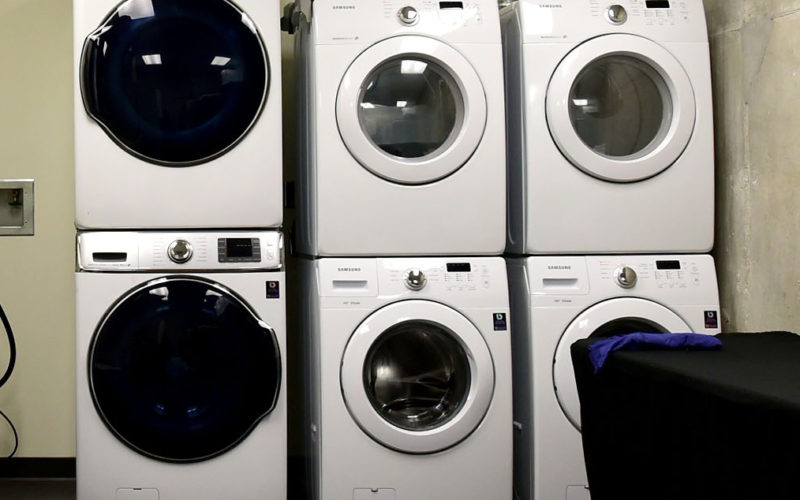Q. I just got my first out-of-college job and am hoping to move up the business ladder. I’ll be doing my own laundry and could use some help with that, especially with my shirts. What rules can you give me?
A. Good for you! You are wise to pay attention to the clothes you wear in your climb to the top. Others will notice that you are well-groomed. Certainly, when money is no object, you can just send all your clothes out to a professional dry cleaner/laundry. They will wash, clean, and press whatever you have so you always look good. To be realistic, in today’s wash-and-wear world most clothes do not really require the efforts of a professional. You can clean most of them on your own and save an enormous amount of your income to spend on other, more fun activities.
Business wardrobes consist of suits, blazers, sports jackets, dress trousers, casual pants, sweaters, dress shirts, more casual shirts, and knit polos as well as socks and underwear. The only ones that must consistently be taken to a professional for cleaning are suits, blazers, sport jackets, and dress trousers. Usually made of wool, they do not respond well to washing. But most of the rest can be cleaned at home IF (and that is a big if) you really pay attention to the “rules.” They are:
Read (and believe) the label. This is true for expensive trousers as well as the polo shirts you wear on weekends. Labels are mandated by the federal government. They tell you the fabric content and the recommended method of caring for your garment. While their information is not the only method that works, it is the safest. Often, even if it says to dry-clean, it may be safe to wash it. Still, until you have more experience and know what works for you, proceed with caution.
Separate your wash. This is the area where men often fail to follow through. Do not decide that adding one or two odd items to a load of laundry will not make a difference. It will! Most directions tell you to separate colored loads from whites. That would mean making two piles. My advice is different. I strongly believe in separating laundry into four piles: whites, lights, darks, and reds. If you have ever included one red item in a load of white clothes, you will know why I advocate this. Perhaps you may only do reds once a month, but your clothes will thank you.
Pre-treat stains by pouring detergent directly on any spots; allow it to sit for hours or up to a day.
Button all buttons and zip all zippers before washing. Also empty out the pockets.
Turn garments inside out when you’re not sure if they might need extra care. This protects the surface fabric, especially on shirts. Another form of protection is to put them into a zippered mesh laundry bag. Use the bags for shirts, sweaters, and anything with embellishments, such as studs.
Never use hot water, no matter what the instructions say. Warm (or even cool) is always safest.
Don’t overload your washing machine. It is better to do a small load than one that crowds the clothes. When washing several smooth-surfaced items, add a plain terry cloth towel to help scrub them. They will come out cleaner and looking better.
Use the dryer cautiously. Do not dry for too long; over-dried wrinkles are harder to get out. And some items (with elastic) are better air-dried, that is, not put into the dryer at all. I do not dry socks and underwear in the dryer.
Ironing is often necessary if you want to look well-groomed and professional; this is especially true with dress shirts, but there are tricks to make it easier and more effective. Use the coolest iron that will get the job done well. Try to iron shirts while they are still slightly damp. Hang them up immediately on smooth, non-wire hangers. And here’s a trick that works: if you’re sure you are going to wear a sweater over your shirt all day, only iron what shows, the collar and cuffs!
For something that is only slightly wrinkled (even a wool garment), try hanging it near a hot, steamy shower.
Make friends with the best (not the cheapest) professional dry cleaner/laundry you can find, especially for items you like a lot and are not sure you can handle on your own.
All this extra care will pay off as a highly worthwhile investment.
Please send your men’s dress and grooming questions to MALE CALL: Lois.Fenton@prodigy.net









